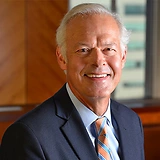“….in order to form a more perfect union…”
Preamble
“To improve is to change; to be perfect is to change often.”
Winston Churchill
Is the U.S. Constitution too hard to change, to make “more perfect,” to amend?
One of America’s most thoughtful commentators on the topic of amendability is Sixth Circuit Chief Judge Jeffrey Sutton. He points out (in a recent virtual Town Hall meeting at the National Constitution Center) that Madison and Jefferson agreed on many things, except amendability. Madison thought the Constitution should be hard to amend. Jefferson thought the opposite.
Madison’s view has, in our day, prevailed at the federal level, while Jefferson’s view won at the state level.
Article V of the federal Constitution sets the bar very high, some say too high, for change, requiring three quarters of the states to approve and ratify amendment.
As a result, we haven’t seen an amendment in over 30 years. Of the 27 amendments, 10 are the Bill of Rights from 1791, which were part of the original deal of original ratification in 1787. That leaves 17, two of which were about booze. Take out booze and we’re looking at a mix of only 15 amendments.
By contrast, 46 of the states permit amendment of state constitutions by 51% vote. As a result, there have been (by Judge Sutton’s count) 7,500 state constitutional amendments. The states, in other words, have been much more democratic: i.e. the people by majority vote have been able to enact much more readily the constitutional changes the people want. Judge Sutton points out “the oddity” that Americans should have such different views of amendment, changing their state constitutions fairly readily but not so with the federal.
Some commentators say it should be so: that Article V promotes federal government stability. Others see Article V “stability” as ossification, the root cause of courts acting like legislators. Since the Constitution is too hard to amend (the argument goes), judges stretch to make old text fit new contexts. This is a “who decides,” separation of powers problem. Unelected judges amend the Constitution, some critics say, by interpretation rather than amendment by elected representatives. Should the Scotus Nine, jobs for life, no term limits, not elected, wield so much power to adapt the Constitution to 21st century contexts? Or should the democratic process have more say here?
Of course, debate over amending the Constitution can run aground on the big partisan divide issues (guns, reproductive rights etc.) while ignoring important structural issues for the democratic process, like whether to outlaw gerrymandering of legislative voting districts.
Some dismiss the amendability question much too readily, saying “It’ll never happen in my lifetime!” Take another look, especially at the younger, next gen of citizens coming up. Take a look at the states. Better not to be too certain that amendment will never happen, including amending Article V.
How well do generations still on the political stage know younger generations not yet there but to whom the torch needs to be passed, if at all?

